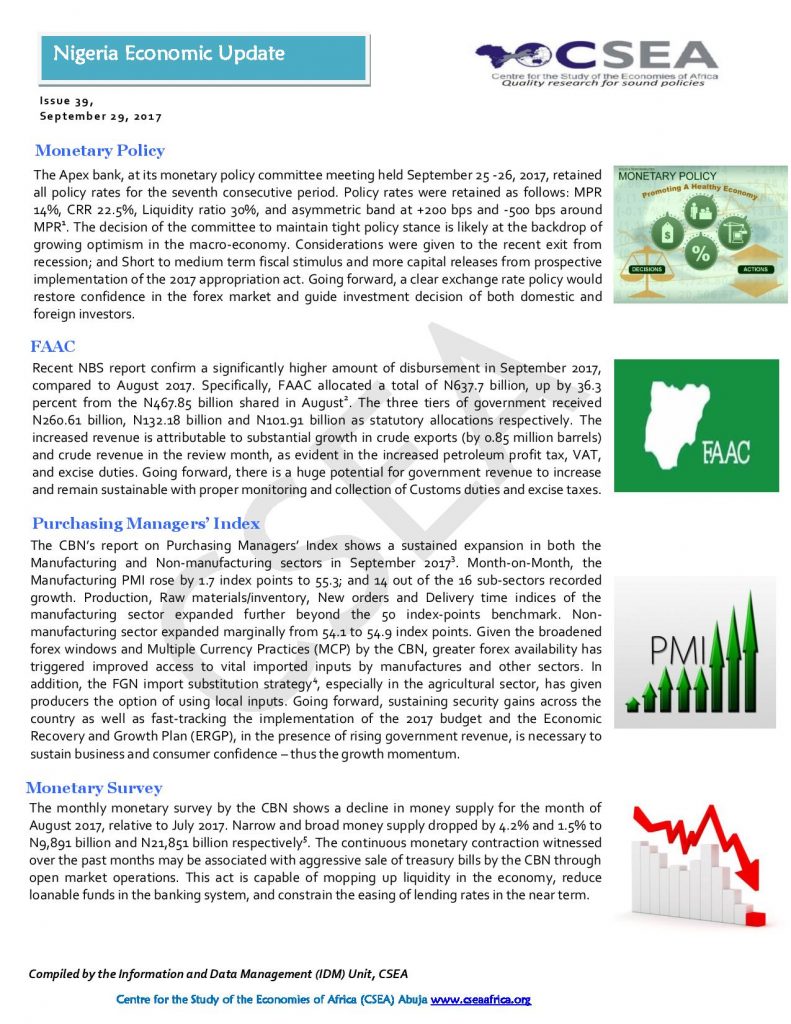Macroeconomic Report & Economic Updates

October 11, 2017
Nigeria Economic Update (Issue 39)
The monthly monetary survey by the CBN shows a decline in money supply for the month of August 2017, relative to July 2017. Narrow and broad money supply dropped by 4.2% and 1.5% to N9,891 billion and N21,851 billion respectively. The continuous monetary contraction witnessed over the past months may be associated with aggressive sale of treasury bills by the CBN through open market operations. This act is capable of mopping up liquidity in the economy, reduce loanable funds in the banking system, and constrain the easing of lending rates in the near term.
Related
Nigeria Economic Update (Issue 34)
Recently released report by the National Bureau of Statistics shows that Nigeria recorded remarkable Year-on-Year (YoY) and Quarter-over-Quarter (QoQ) increase in capital importation. Total capital importation stood at $1,792.3 million in 2017Q2, representing 72 percent YoY and 97 percent QoQ growths respectively. Disaggregated data points to portfolio investment as the dominant type of investment imported, with a value of $770.5 million, 43 percent of total capital importation. The increase in capital importation was driven by 145 percent QoQ surge in portfolio investment and a remarkable increase in capital imported through shares.
Regional Trade For Inclusive Development In West Africa
This
study examines the potential of regional trade in facilitating the achievement
of inclusive development in the West African region. It employs descriptive
analysis to examine the nature, composition and dimension of ECOWAS trade within
the group and with the rest of the world, vis--vis three other Regional
Economic Communities (RECs) in sub-Saharan Africa (SSA). From the preliminary
study, it can be observed that the growth rate of West African economies is
increasing, but the rising economic growth does not translate to improvement in
inclusive development, as there was no significant reduction in poverty levels in
the region. Further evidence reveals that extra-regional trade of the region is
increasing at a very high rate, and also at a disproportionate rate with
intra-regional trade, compared with SADC. This indicates the existence of
opportunity to boost regional trade for inclusive development through
conversion of part of the extra-regional trade into regional trade.
